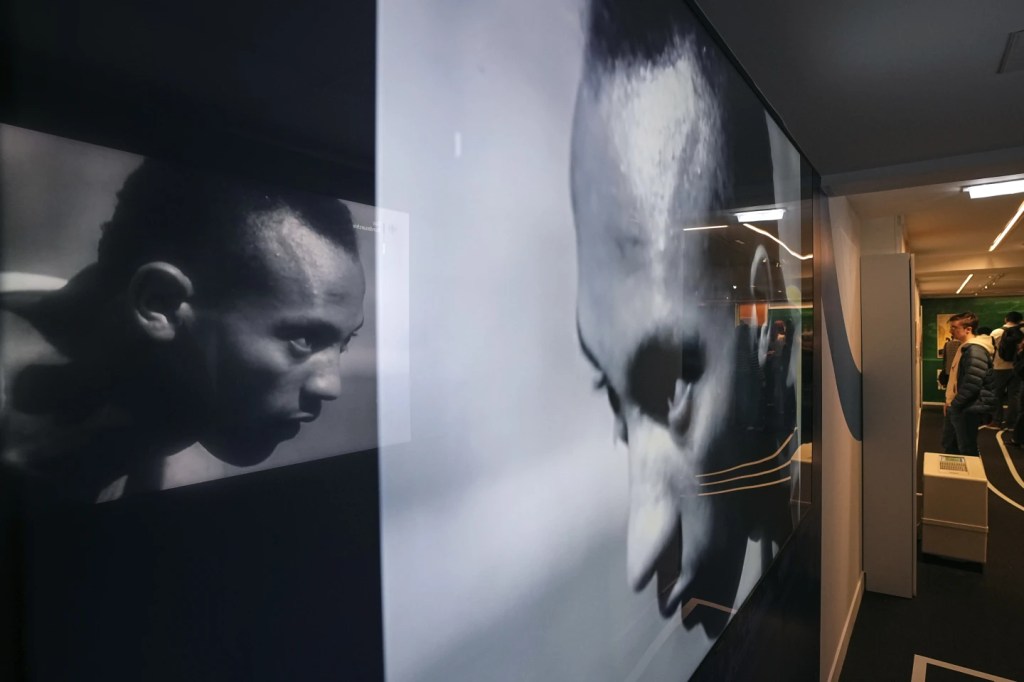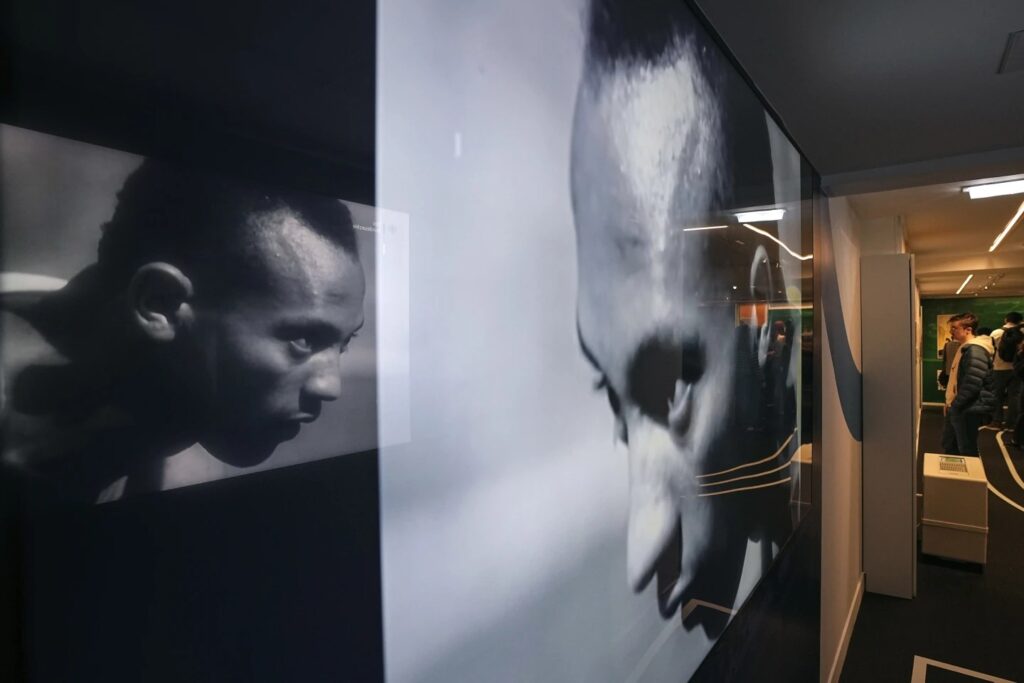PARIS (AP) — The Olympics are not only a sporting event, but also a powerful political arena that has been widely used as a propaganda tool by totalitarian regimes, but athletes are also making waves in the fight against racial inequality. It was used as a driving force.
An exhibition held in the French capital ahead of this summer's Paris Olympics shows how the Olympics have been a “mirror of society” since the early 20th century.
“This exhibit is trying to show the relationship between ideology, power and the Olympics,” historian Paul Diessi, one of the curators, told The Associated Press on Wednesday.

Located in the heart of Paris, the exhibit at the Schoa Memorial features film archives from the past century, as well as photographs, documents, and Olympic-related items. Organizers say it will open to the public on Friday and run until mid-November.
It focuses in particular on the 1936 Berlin Olympics, which were used by Nazi Germany for propaganda purposes. The 1968 Mexico Olympics, where black sprinters Tommie Smith and John Carlos raised their fists to protest racial injustice in the United States, and the brutality of Palestinian militants against 11 members of the Israeli team. The 1972 Munich Olympics was the scene of the attack.
Diessy said the exhibit will “take a look at the lives of big stars and champions like Alfred Nakache, an Algerian Jew who competed in swimming and was sent to Auschwitz during World War II” during the Olympic Games. He said he aims to show historical and political significance. . After surviving the Holocaust, Nakache competed for the French national team in Berlin in 1936 and in the first post-war Summer Olympics in London in 1948.
The exhibit also tells the stories of athletes who embody Olympic values, such as Jesse Owens, a black American athlete who won four gold medals at the Berlin Olympics.

Historian Caroline Francois, one of the curators, said: “The 1936 Olympics epitomizes the story of Jesse Owens because he was a great champion who left his mark on the history of the sport.'' …But also his personality and career, he has a close relationship with German champion Luz Long.”
“Owens embodies this struggle against Hitler and Nazi ideology…but he was also a victim of racism and racism in America,” she said.
The exhibition also addresses the question of how the Olympic Stadium was turned into a concentration camp during World War II. After the Nazis invaded France in 1940, the country was ruled by a government commonly known as Vichy France, which collaborated with Nazi Germany.
The exhibit includes photographs of the Velle d'Hives stadium on the outskirts of Paris, where French police held approximately 13,000 people between July 16 and 17, 1942, before deporting them to Auschwitz. This stadium was used for boxing, wrestling, and weightlifting during his 1924 Paris Olympics.
International politics is once again expected to be on the agenda at this year's Paris Olympics.
Recommended stories
The International Olympic Committee announced earlier this month that athletes from Russia and Belarus would not be allowed to take part in the traditional parade at the opening ceremony in the French capital.
Russia and Belarus have been excluded from team competition at the Olympics because of Moscow's war with Ukraine, and the IOC has instituted a two-step vetting procedure to give individual athletes from those countries a neutral stance. These athletes must first be approved by their individual sport's governing body and then by a review committee appointed by the IOC.
Amid the Israel-Hamas war, IOC President Thomas Bach recently stated that Israel faces no threat to its Olympic status, adding: Israeli players. ”
Diessi said that recently, totalitarian and democratic forces have been competing through sports and other activities.
“The Paris Olympics is a very important moment, because we will see whether the values of peace will be respected,” he said. “We would like to see whether sports can also be a means of spreading universal democratic values.”
“The situation is more tense (currently) as wars are escalating around the world. Perhaps the (Paris) Olympics will be a moment of peace,” Diessy said with hope.
Never miss a beat: Get daily articles delivered straight to your inbox with theGrio's newsletter.

